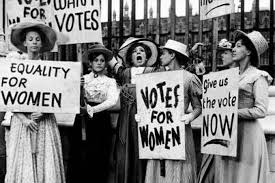The 14th Amendment: A Cornerstone of Inclusion and Diversity in America
The 14th Amendment to the United States Constitution, ratified on July 9, 1868, stands as one of the most transformative legal provisions in American history. Rooted in the principles of equality, justice, and protection under the law, it has been the backbone of numerous civil rights advancements. As we reflect on its significance, it is crucial to recognize how this amendment has shaped the nation's journey toward inclusion and diversity, benefiting people of all races, ethnicities, and backgrounds.
A Landmark for Civil Rights
The 14th Amendment was introduced in the aftermath of the Civil War to grant citizenship to formerly enslaved individuals and ensure their rights were protected under the law. However, its impact stretched far beyond that initial purpose. The amendment’s Equal Protection Clause, Due Process Clause, and Citizenship Clause have been fundamental in shaping landmark legal decisions that continue to define American society.
Over the decades, the 14th Amendment has played a crucial role in desegregation, voting rights, gender equality, and LGBTQ+ rights. It has provided the legal framework for cases such as Brown v. Board of Education (1954), which ended racial segregation in public schools, and Loving v. Virginia (1967), which struck down laws banning interracial marriage. More recently, it was instrumental in securing marriage equality for same-sex couples in Obergefell v. Hodges (2015).
The Statistical Impact of the 14th Amendment
The effects of the 14th Amendment are far-reaching, influencing the lives of millions of Americans. Here are some key statistics that highlight its impact:
- Educational Equity: Since the Supreme Court’s ruling in Brown v. Board of Education, high school graduation rates for Black students have increased from 25% in 1960 to over 85% today. Similarly, Hispanic graduation rates have climbed from less than 50% in the 1990s to over 82% in recent years.
- Voting Rights and Representation: The Voting Rights Act of 1965, which was reinforced by the principles of the 14th Amendment, helped increase Black voter registration in the South from less than 30% in 1965 to over 65% by the 1980s. Today, minority voter participation continues to rise, helping elect diverse representatives across local, state, and federal governments.
- Workplace Diversity: Title VII of the Civil Rights Act of 1964, rooted in the 14th Amendment, prohibited employment discrimination. Today, the percentage of racial and ethnic minorities in professional and managerial positions has significantly increased. For instance, the percentage of Black managers in the workforce rose from 3% in 1960 to nearly 10% today, while women’s workforce participation jumped from 38% in 1960 to over 57% today.
- Immigration and Citizenship: Since the 14th Amendment guarantees birthright citizenship, millions of immigrants' children have had the opportunity to access education, employment, and political representation. Approximately 4.3 million U.S.-born children of undocumented immigrants are American citizens, contributing to the country’s economy and culture.
A Call for Continued Vigilance
While the 14th Amendment has driven substantial progress, challenges remain. Voter suppression efforts, systemic inequities in education and employment, and ongoing struggles for full inclusion highlight the need to uphold and strengthen the protections enshrined in this amendment. As a nation, we must remain committed to the values of justice and equality, ensuring that the rights granted by the 14th Amendment continue to serve all Americans.
Conclusion
If the 14th Amendment were to be removed, the consequences would be devastating for civil rights and social equity in the United States. The progress made in education, voting rights, workplace diversity, and equal protection under the law would be at risk of unraveling. Without its protections, marginalized communities could face increased discrimination, reduced legal recourse, and greater barriers to opportunities. The repeal of this foundational amendment would not only undo centuries of progress but also threaten the very ideals of democracy and justice that the nation strives to uphold. It is imperative that we recognize the amendment’s profound importance and actively work to preserve its legacy, ensuring that equality and inclusion remain at the heart of American society.

